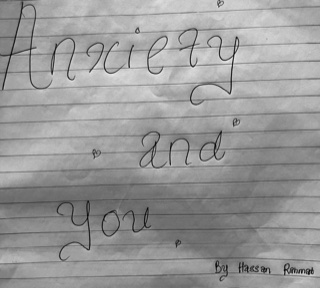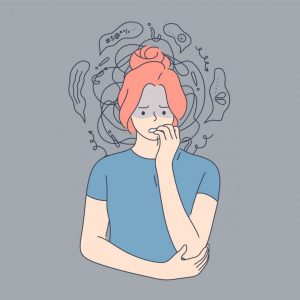
ANXIETY AND YOU
Anxiety is a feeling of fear that increases the rate of your heartbeat which can cause you to feel uneasy, restless, and tensed. Most student get anxiety during exam, test, at work or when faced to making important decisions. Long-term anxiety or panic level anxiety increases the rate of headache, dizziness, and depression one can have. Anxiety have impact in different areas of the body, some feel it in their neck, chest or stomach depending on where the brain sends the nerve signals. The physical symptoms are Headaches, shortness of breath, body shake or stomach pain. Anxiety as defined by medical experts is a feeling of fear with physical symptoms such as sweating, palpitations and the feeling of stress.
Different events that can cause anxiety are stress at work, school, business, relationship, global occurrences, pregnancy, death of loved one, any type of abuse or trauma. Factors that can increase your risk of developing anxiety disorder are Trauma, stress, mental disorders, drugs, or alcohol depending on the body.

PRACTICAL TIPS ON OVERCOMING ANXIETY ARE:
- Take deep breaths
- Count numbers slowly, you can count 1-10 or 1-20
- Limit alcohol or drugs because they can increase anxiety and trigger panic attacks
- Take a time out
- Get enough sleep
- Eat nutritious diet
- Exercises like running, Yoga, dancing, swimming, and taking long walks
- Drinking enough water
- Use stress management and relaxation techniques
When student have anxiety, it affects their mental health which leads to different social and behavioral problems such as poor performances in learning, low self-esteem, and poor hygiene.
I hope these helps everyone including students overcome anxiety.
- Learning and Growth Mindset - 13th September 2024
- Another successful meeting – IBSEN meets XAMK in Kouvola, May 2024 - 16th May 2024
- Blending and joining the Finnish work life - 8th December 2023
